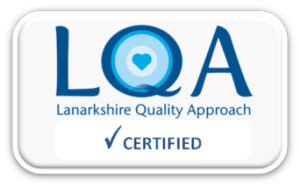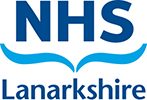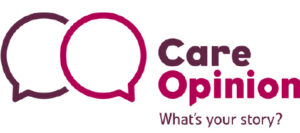Dietary advice for people with Gallstones
Information for patients
NHS Lanarkshire Nutrition and Dietetic Department
PIL.DITGAL.20_15721.L
What are gallstones?
Gallstones are collections of hardened cholesterol, bile pigments or calcium that resemble small stones or gravel and can form in the gallbladder. They can be very painful and can require medical intervention, although many people have gallstones and have no symptoms at all. They occur more commonly over the age of 60 and can affect women more than men, being overweight also appears to increase risk of gallstone formation.
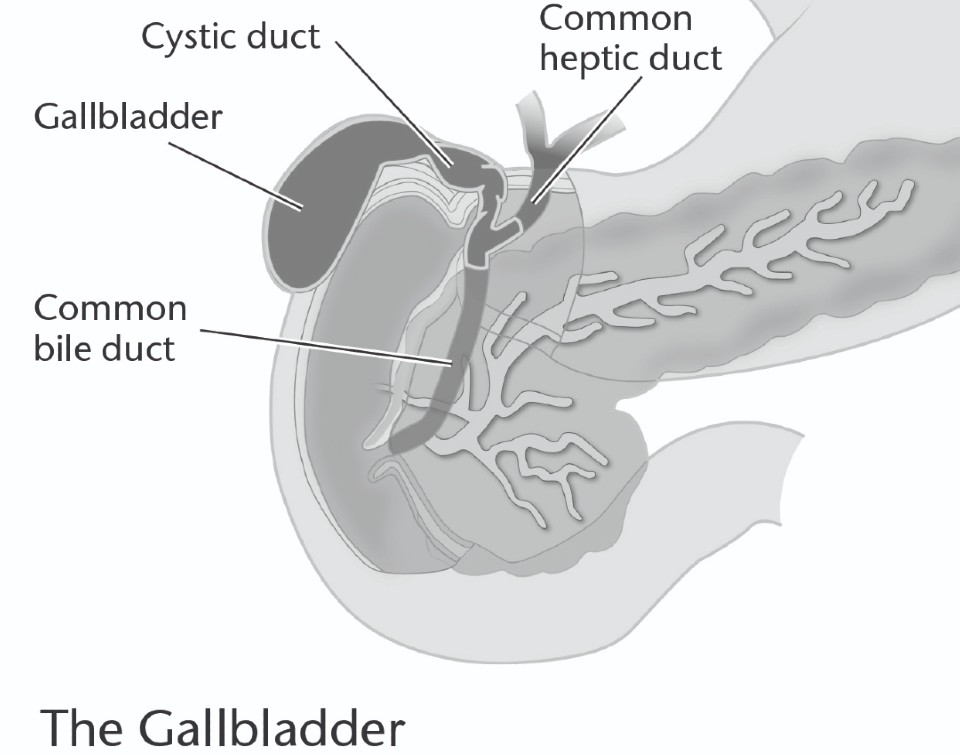
Do I need to follow a special diet?
People are often told to follow a low fat diet following a diagnosis of gallstones, however, there is conflicting evidence to support this, and whilst it improves symptoms in some patients this is not the case for all patients with gallstones.
Dietary fat is known to stimulate gallbladder contraction which is why for some it increases symptoms when eating these fats, however this process of gallbladder contraction also reduces the risk of a build-up of stone-forming components in the gallbladder and bile duct. Additionally, rapid weight loss associated with following a low fat diet increases the risk of gallstone formation.
Fat is an essential component of a balanced diet and should constitute approximately 30-35% of energy intake. There may be an increased risk of developing gallstones in a diet high in trans-fatty acids, it is therefore recommended that people with gallbladder problems eat within the principles outlined on the ‘Eat Well Guide’.
Eatwell Guide
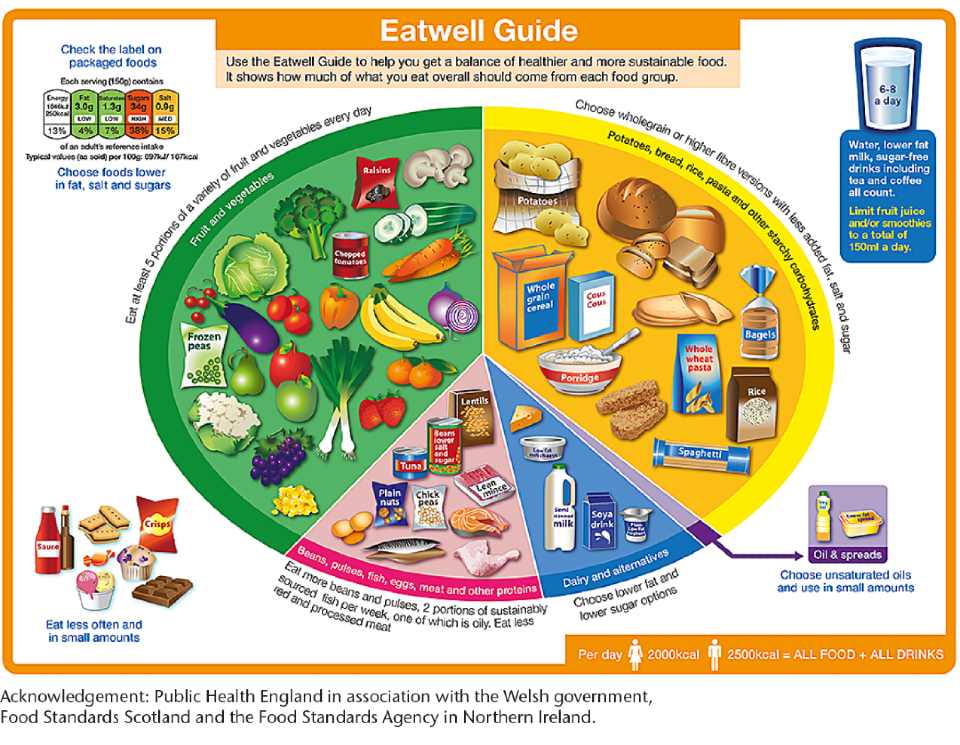
The Eat Well Guide divides the foods we eat and drink into five main food groups: starchy carbohydrates; fruits and vegetables; dairy & alternatives; foods rich in protein; and oils and spreads.
Try to choose a variety of different foods from each group to help you to consume the wide range of nutrients your body needs to stay healthy.
- Eat at least five portions of a variety of fruit and vegetables a day
- Base meals on potatoes, bread, rice, pasta or other starchy carbohydrates, choose wholegrain where possible as dietary fibre can be protective against the formation of gallstones
- Have some dairy or dairy alternatives (eg. Soya, almond, oat, coconut products fortified with calcium), choosing lower-fat and lower-sugar options where possible
- Eat some beans, pulses, fish, eggs, meat and other proteins. Aim for at least two portions of fish every week including one portion of oily fish such as salmon or mackerel
- Choose unsaturated oils and spreads (eg. Plant based such as olive oil, vegetable oil) and eat in small amounts
- Foods high in fat, salt and sugar should be eaten less often and in small amounts
- Drink plenty of non-alcoholic fluids – at least 6-8 cups/glasses per day
Intakes of foods that are high in trans fatty acids should be minimal, these include:
- Pastries and pies
- Deep-fried foods
- Fried snacks eg. Crisps (baked crisps can be included in moderation in a healthy diet)
What if certain foods trigger symptoms?
If you experience pain with specific foods then you could avoid these for a trial period of one week to see if the pain reduces, if symptoms persist reintroduce the food and speak with your GP or pharmacist about appropriate pain relief.
Larger meals can cause discomfort for some people with gallstones, therefore, reducing meal size but eating more frequently may reduce your symptoms.
Unfortunately, pain can be caused by eating in general as this causes the gall bladder to contract, missing meals can worsen symptoms by causing more stones to develop so it is important to continue to eat regularly.
How do I reduce the risk of developing further gallstones?
Following a balanced diet as outlined above is recommended. If you are overweight then gradual weight loss of 1-2lbs (0.5-1.0kg) per week could help to reduce your risk of further gallstones forming. You should avoid rapid weight loss or ‘yo-yo’ dieting as this can contribute to gallstone development.
What if I get my gallbladder removed?
After a cholecystectomy, you do not need to follow a special diet. Your liver will continue to produce bile which will drip into the bowel continuously rather than being stored in the gallbladder. It is important to continue to eat well to recover from the surgery and to return to eating a healthy, balanced diet in the long-term.
Additional support
If you find that you are losing weight unintentionally, have been avoiding lots of different types of food or are struggling to follow an appropriate diet or, if you are struggling to lose weight despite trying then ask your GP or consultant to refer you to a Dietitian who will be able to provide tailored advice and support.
Pub. date: February 2023
Review date: February 2025
Issue No: 03
Reference: PIL.DIGTAL.20_15721.L
22_28973
If you need this information in another language or format, please e-mail:
